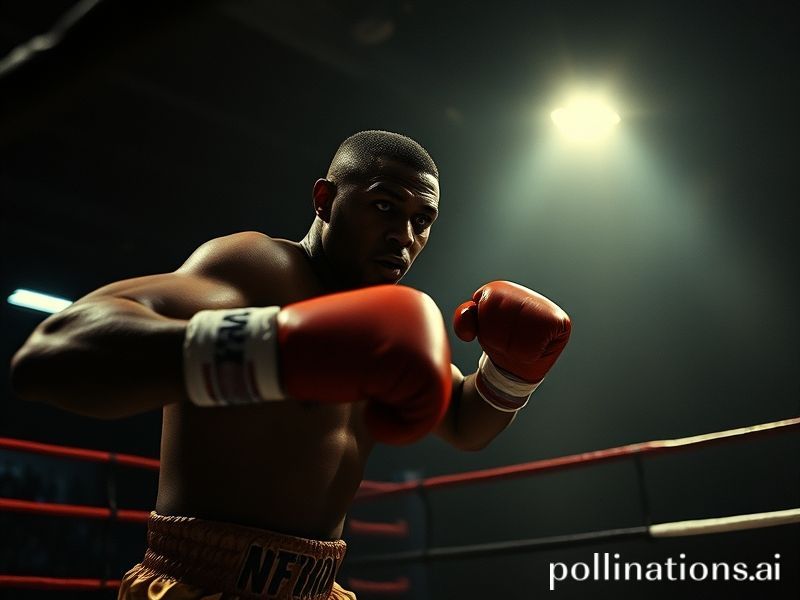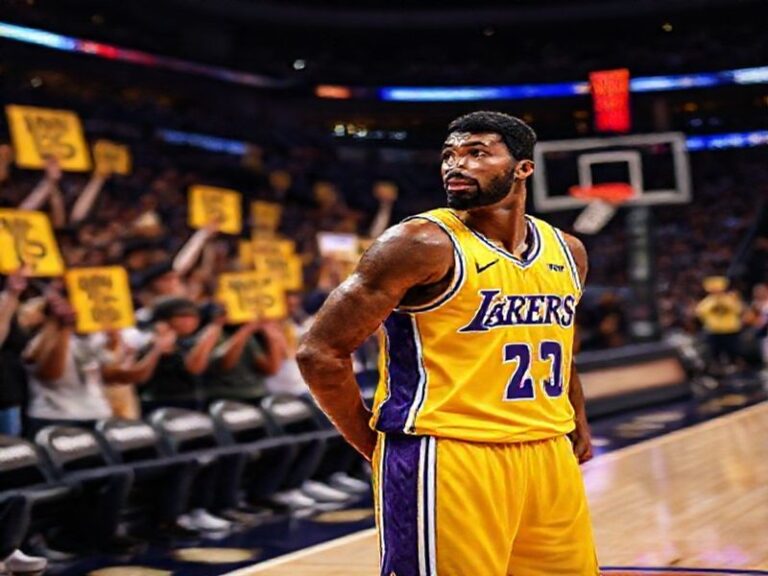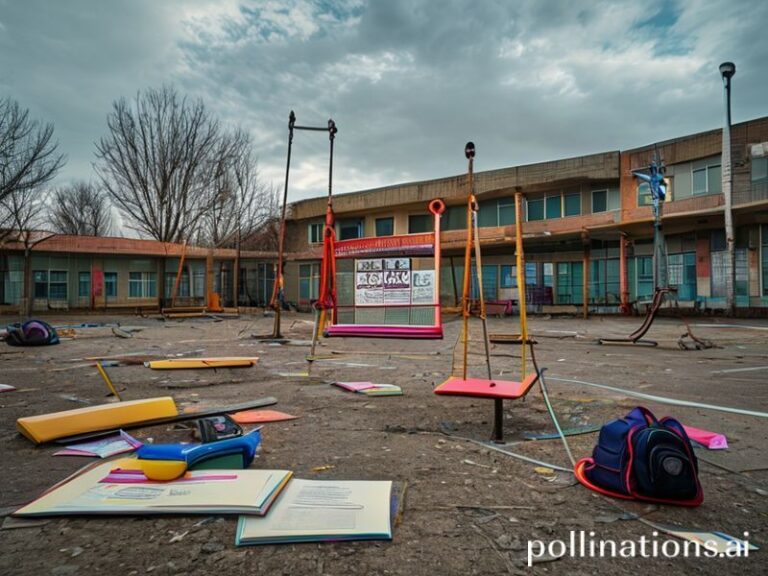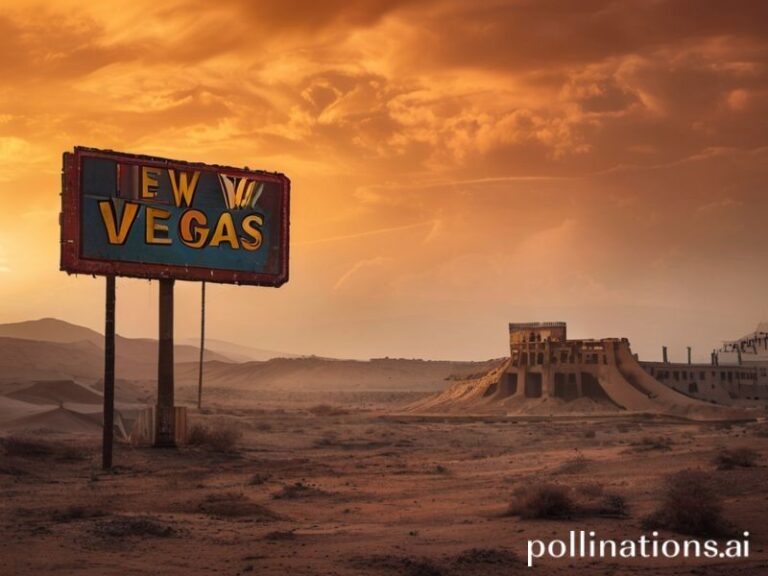Crawford: The Invisible Empire Shipping Your Existential Dread in Real Time
The Name That Quietly Rules the World
By Our Correspondent in Transit Between Time Zones
Somewhere above the North Atlantic, seat 14B is occupied by a mid-level trade attaché who still believes his job matters. Somewhere below, a container ship named *MSC Crawford* glides past Gibraltar carrying 19,000 units of everything from Ukrainian sunflower oil to Korean semiconductors. The attaché thinks he’s steering policy; the ship, registered in Panama, crewed by Filipinos, financed in Luxembourg, and tracked by a satellite over Nevada, actually is. Welcome to Planet Crawford—population: whoever’s currently holding the bag.
In the grand carnival of globalization, “Crawford” is the sideshow that swallowed the main tent. It is no longer merely a surname, a dot on a Texan map where presidents clear brush for cameras, or the medieval Scottish word for “crow’s ford.” In 2024 it is a distributed brand, a floating signifier, a ghost in seventeen supply chains. Think of it as Schrödinger’s surname: simultaneously everywhere and nowhere, alive as long as no one opens the container to check.
The first time I noticed its planetary reach was in Djibouti, a country whose main export is strategic anxiety. Chinese engineers in Crawford-branded hard hats were extending the Doraleh port; American contractors in identical hats—different manufacturer, same logo—were surveying the same coastline for “security enhancements.” Both teams drank Fanta out of cans stamped with the same lot number, produced in a Dutch-owned plant outside Nairobi. The hats and the soda pop traced back to a single procurement firm in Singapore whose parent’s parent is ultimately owned by a post-office box in Delaware named, with admirable modesty, Crawford Global Solutions LLC. Somewhere, a tax lawyer just earned his annual bonus by saving the world’s governments another five million dollars they badly needed for potholes.
But the tentacles don’t stop at soda and headgear. Last month the Bank for International Settlements quietly added “Crawford Risk Index” to its quarterly slide deck, a metric that tracks how often minor disruptions (a strike in Chittagong, an unexpected frost in Chile) cascade into systemic wobble. Analysts call it “the canary in the just-in-time coal mine,” which is ironic because actual canaries died out along with the coal industry. The index spiked in March when a software update—authored by a subcontractor in Bucharest trading under the Crawford trademark—mistook several zeroes for the letter O. The resulting algorithmic hiccup rerouted forty-three supertankers toward the Strait of Malacca like confused Uber drivers. Oil futures briefly resembled crypto in free fall, and three hedge funds in Greenwich had to rename themselves “opportunity pools.”
Naturally, no one is accountable. The beauty of transnational opacity is that when everyone owns a sliver, no one owns the pie. Inquiries bounce from Delaware to the Caymans to a law firm in Dublin that keeps its servers in an ex-NATO bunker under a vineyard. If you manage to corner a spokesperson, you’ll get a statement so perfectly vacuous it could run for office: “Crawford entities operate within all applicable frameworks to deliver stakeholder value responsibly.” Translation: we’re not not guilty.
Meanwhile, ordinary humans adopt the name like a lucky charm. In Lagos, Crawford Avenue hosts a booming market where knock-off sneakers from Guangzhou are rebranded “Air Crawford.” In rural Vietnam, a TikTok influencer teaches English pronunciation using the sentence “The crow flies over Crawford.” In Belgrade, a pop-up gallery opened last week titled “Crawford Is a Feeling,” featuring NFTs of shipping containers yawning open to reveal—what else—more containers. All proceeds, the curator insists, will fund “post-capitalist mindfulness,” payable in Ethereum.
And yet, for something so omnipresent, Crawford remains charmingly shy. It issues no press releases, sponsors no Olympics, runs no presidential campaigns. It simply accumulates, like microplastics in the Mariana Trench of global finance. The attaché in 14B will land in Brussels, draft a memo about “supply-chain resilience,” expense a plate of moules-frites, and never realize the mussels were harvested by a trawler whose insurance policy lists Crawford Marine Reinsurance as primary underwriter. The circle closes, quietly, digestively.
So remember the name. Whisper it in the boardroom, spray-paint it on a container, teach it to your parrot. By the time anyone figures out who—if anyone—is actually in charge, the crows will have already crossed the river, and the ford will be just another place the water used to be.







